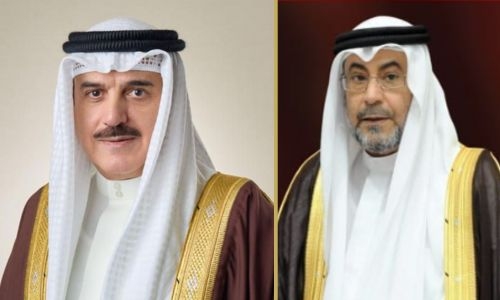The Minister for Shura Council and House of Representatives Affairs, Ghanim Al Buainain, emphasized that individuals convicted of crimes related to violence, terrorism, and communication with hostile parties should not be labelled as ‘prisoners of conscience’. He made this statement in response to calls from certain parliament members to extend a royal pardon to release all prisoners, including those classified as prisoners of conscience. Al Buainain stated that all inmates serving sentences at Reform and Rehabilitation Centres have been convicted of illegitimate offences, not related to freedom of expression and speech. He also condemned the characterization of convicts as political prisoners, as it undermines the principle of separation of powers and the rule of law.
Council of Representatives Speaker, Ahmed bin Salman Al Musallam, also reiterated the importance of the principle of separation of powers in Bahrain’s government system. He mentioned that the Bahraini Constitution ensures that no authority has jurisdiction over the judge’s rulings. Al Musallam criticized the actions taken during the parliament session on 30 April, stating that they overstepped boundaries by interfering in matters under the jurisdiction of the judicial authority. Describing convicts as if they did not deserve punishment and suggesting their actions were exercises of freedom of expression goes against the principles of the constitution.
The remarks made by both Ghanim Al Buainain and Ahmed bin Salman Al Musallam highlight the importance of upholding the rule of law and respecting the separation of powers within Bahrain’s government system. They argue that individuals convicted of serious crimes, such as violence and terrorism, should not be labelled as prisoners of conscience or political prisoners. By doing so, it undermines the authority of the judiciary and blurs the lines between the branches of government. The Minister and the Council of Representatives Speaker emphasized that the judiciary has the sole authority to determine the guilt or innocence of individuals and impose appropriate punishments.
The issue of categorizing convicts as political prisoners or prisoners of conscience is a contentious one, with differing opinions on how to address individuals convicted of crimes related to violence and terrorism. Some believe that lumping all convicts together under the same umbrella term is unfair and does a disservice to the victims of these crimes. Others argue that labeling individuals as political prisoners can bring attention to possible human rights abuses and violations. However, both Ghanim Al Buainain and Ahmed bin Salman Al Musallam stress the importance of following the established legal procedures and respecting the decisions of the judiciary when it comes to convicting and sentencing individuals for criminal acts.
In conclusion, the statements made by the Minister for Shura Council and House of Representatives Affairs, Ghanim Al Buainain, and the Council of Representatives Speaker, Ahmed bin Salman Al Musallam, underscore the need to uphold the principles of the rule of law and respect the separation of powers within Bahrain’s government system. They argue that individuals convicted of crimes related to violence, terrorism, and communication with hostile parties should not be categorized as prisoners of conscience or political prisoners. By doing so, it undermines the authority of the judiciary and disrupts the balance of power within the government. It is crucial to follow established legal procedures and respect the decisions of the judiciary when dealing with individuals convicted of serious crimes.


























